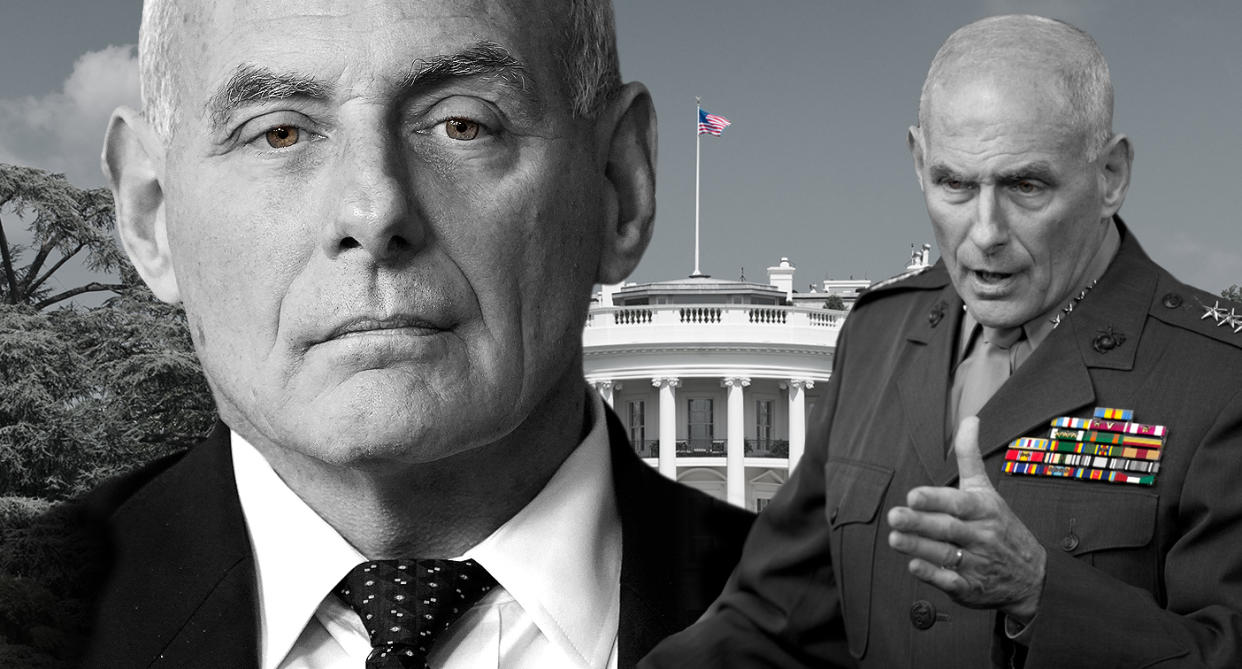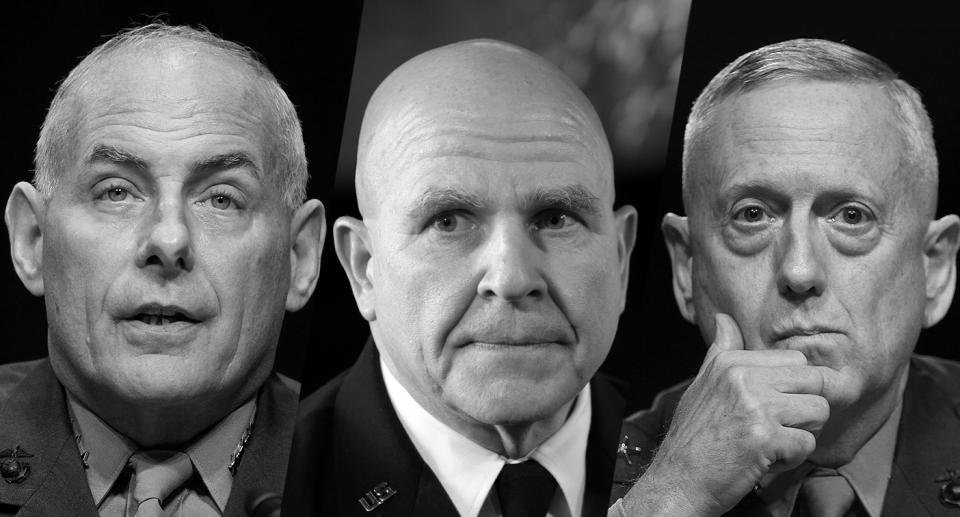In the clash of American cultures, John Kelly picks his side

When John Kelly replaced the ineffectual Reince Priebus as President Trump’s chief of staff on July 31, there was widespread relief that the highly regarded, competent and patriotic retired Marine general would take charge in the White House. Since then, he has operated mostly in the background, but when he took the podium last week, amid an unseemly public spat over what Trump said to the widow of an Army sergeant killed in Niger, many expected him to exert a calming and dignified influence over what was turning into a national embarrassment.
Instead, Kelly made things worse. He picked a fight with a Democratic congresswoman who had criticized Trump, demeaned her with an insulting and provably false anecdote, and then stunned the assembled press corps by saying he would only take questions from reporters who had some connection to a Gold Star family, seeming to stop himself just short of demanding the name, rank and serial number of the deceased service member.
If observers were shocked by this, it is because many had placed their hopes in the trio Trump calls “my generals,” the others being Defense Secretary James Mattis and national security adviser H.R. McMaster, to rein in the president’s authoritarian and unconstitutional impulses.
The military is one of the few American institutions that still command almost universal respect. Officers who have come up through the ranks, often risking their lives in combat, are viewed, and sometimes view themselves, as guardians of American constitutional democracy, standing above politics and self-interest, on the example of the officer whose picture is on the dollar bill.

But not everyone who puts on, and takes off, a general’s uniform is another George Washington. Indeed, Kelly’s performance makes it clear that those who have been placing their hopes in Trump’s trio of generals-turned-advisers are making a mistake.
Kelly’s strain of military thinking puts him at odds with a society in which, as he points out, only a tiny fraction serves, or even knows anyone who serves, and in which few men and women in uniform come from the ranks of the United States’ elite professions, which dominate the nation’s most influential institutions. Kelly, then, embodies a clash of cultures, a lifelong military man now playing a hotly contested political civilian role, who looks askance at the nation’s civilian democratic culture.
That is an unhealthy tendency, and, at times, Kelly’s remarks suggested an authoritarian streak that he seems to share with his boss, the president. He lamented the loss of a mythic time in which “women were sacred and looked upon with great honor,” a time, he reminisced, when Gold Star families and religion were treated as “sacred” topics to be upheld and venerated by all Americans.
Kelly conveyed the sense that because he and others in the military have worn the uniform, served in combat and risked their lives (and in Kelly’s case, sacrificed a son), he feels entitled to make up stories about a member of Congress, an African-American woman, and to exclude civilians in a setting, the White House briefing room, that is of course paid for by and meant to serve every citizen. Behind his calm demeanor, he showed the country a frustration, anger and grievance that complements Trump’s us-against-the-world mentality and political style.
Countless military commanders have been able to make the leap from uniform to serve in elective or appointed political office, and they have done so in ways that uphold and even enhance America’s civilian democratic traditions. Washington showed the way when he shed his uniform and embraced a civilian role, leading the United States as a democratic republic, with a healthy respect for liberty.
As generals, George Marshall and Dwight Eisenhower helped lead the allies to victory in World War II; afterwards, as secretary of state and president, their use of foreign aid and diplomacy in the early years of the Cold War helped prevent the outbreak of an even worse conflict between the Soviet Union and the United States.
Former Georgia Sen. Max Cleland, who lost three limbs in Vietnam, served honorably as administrator of the Veterans Administration under President Jimmy Carter before seeking elective office. Sen. John McCain, R-Ariz., another Vietnam War hero, is the most outspoken congressional opponent of torture; Sen. Tammy Duckworth, D-Ill., who fought in the war in Iraq, has been an eloquent voice for veterans’ affairs.

But other military officers who have taken to politics have introduced an authoritarian streak into the civilian arena, exhibiting tendencies that were echoed in Kelly’s performance at the podium.
Capt. Eddie Rickenbacker, a leading combat pilot in World War I, occupied a spot on the far right of American politics later in life, viewing unions, income taxes and internal communist plots as threats that needed stamping out by the iron fists of patriots. Other generals, Edwin Walker and Curtis LeMay, for instance, entered civilian life and fought to defend the Jim Crow segregationist order in the 1960s South, using their military reputation to advance anti-democratic values and thwart the progress of civil rights.
John Kelly, of course, is in a vastly different position in his own unique time and place. Nevertheless, he seems intent on intensifying a clash of values between military authority and civilian norms: constitutional checks and balances, a healthy respect for democratic criticism and tolerance of a free press. Kelly’s performance last week suggested that he was willing to exploit this fissure between the civilian and military worlds for his boss’s political purposes, an unhealthy tendency in a democracy that’s already tottering under the strain of Trumpism.

_____
Matthew Dallek, associate professor at George Washington’s Graduate School of Political Management, is author of Defenseless Under the Night: The Roosevelt Years and the Origins of Homeland Security.
Read more from Yahoo News:

